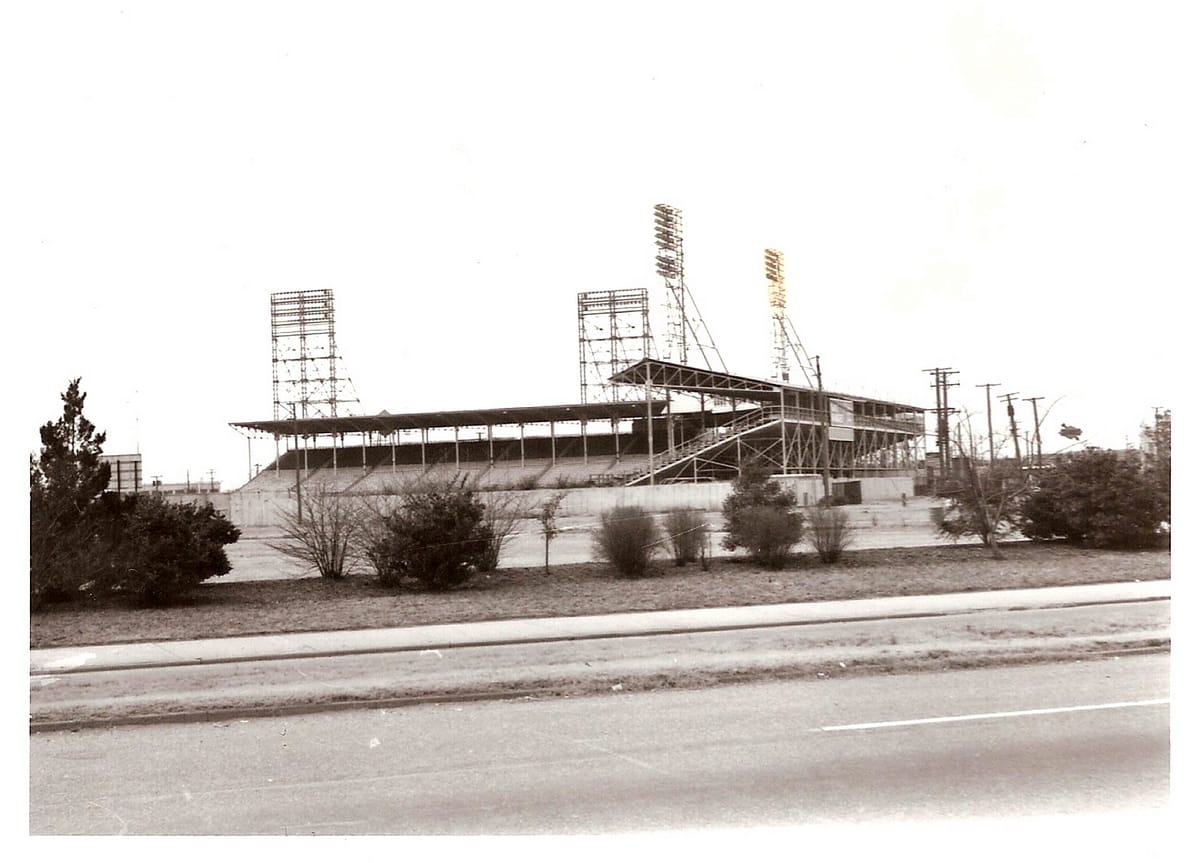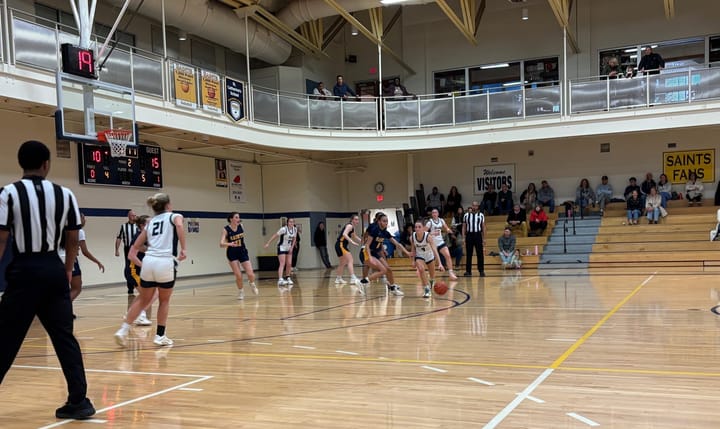
In memoriam: Former R-Braves general manger Roger Bottorff dies at 89
Roger J. Bottoroff: Born Sept. 13, 1935, died May 24, 2025
Why is it that, too often, we find we don’t really know someone until it’s too late? And wish we had.
Former Richmond Braves general manager and director of the National Tobacco Festival, Roger Bottorff, who came to the Capital City from the midwest many moons ago and never left, died Saturday of congestive heart failure. He was 89.
“He was the most caring person I ever knew,” said wife Phyllis. “He didn’t want to see wrong in people … only good. He was just a wonderful person to be around.”
And here I thought he was mostly a tough guy, a good friend when he trusted you, but otherwise hard scrabble, unwilling to let his softer side show. Who knew?
“Nobody would figure him to be that way,” Phyllis B. said.
He wasn’t much for talking about himself, either.
Thank goodness then for another little-known thing about the man. Bottorff liked to keep old clippings in scrapbooks. These memory reminders told us a lot about him, too.
FOR EXAMPLE, although he might have mentioned it once or twice in casual conversation, typically making it sound like no big deal, the native of Nebraska was quite the left-handed pitcher growing up in Lincoln.
As a junior at Lincoln High School, Bottorff threw a perfect game for the 1952 state championship. He was referred to as “little Roger Bottorff, ace lefty of the Lincoln mound staff” after a one-hitter … And … “The star of the Red and Black mound corps … came on in the third frame [to] virtually win his own ball game … During his five-inning stint, the slight portsider struck out 12 and rapped out a two-run homer in bottom of the fifth to break up a 5-5 tie.” Final score: 7-5.
From Lincoln, Bottorff went to the University of Nebraska where he lettered four years. He was equally good as a starter or reliever. Of Bottorff, his ace, Cornhusker coach Tony Sharpe tried to explain his effectiveness. “Well … he’s plenty cool out there on the mound,” Sharpe said.
In 1957 Mr. Cool signed a contract for $500 to play pro baseball in Wytheville, Va., for the St. Louis Cardinals’ rookie league team. Unfortunately, he had to call it a career after little more than a month because of arm trouble.
“You know … I was born on Friday, the 13th,” Bottorff said.
Returning home, he was working for the state highway department … as well as concessions’ manager for the Lincoln Chiefs when, in 1959, Bottorff was named general manager while the team was moving to the Three-I League (B).
At age 23, he was baseball’s youngest GM … and the old newspaper articles from back in the day paint a picture of a confident, aggressive Bottorff, always the competitor, on the field and off.
Remember, this was more than 65 years ago, when the game WAS important, and success for the front office was dependent on the playing product. A bad team invariably meant equally poor returns at the box office … unlike today when the ballpark becomes a three-ring circus with nightly promotions that are entertaining enough to keep fans coming regardless of the quality of the team on the field.
(See the Double-A Eastern League’s Richmond Flying Squirrels, who have had just three good teams since coming here 15 years ago yet always are among the leaders in minor-league attendance.)
Except for the annual, much-anticipated Pony Night, in which a small horse was given away to some “lucky” ticket holder … and always guaranteed to (a) fill seats; and (b) leave most fathers in attendance praying, “Please, Lord, not us!” … Bottorff didn’t have the luxury of misdirection.
So, from Lincoln to Durham, N.C. … and the Class A Bulls (of Kevin Costner movie fame) … to Richmond and Atlanta’s AAA International League top farm (1969-1975), he set season-ticket goals, depending on old-fashioned hustle and hard work to reach them – which he almost always did … and then some.
On arriving in Durham in 1962, for instance, Bottorff was described by Bulls’ president Thomas Hunt as “a real livewire [who] is one of the finest young executives in baseball.” Then, to prove it, Bottorff set in motion a campaign described in The Durham Sun as “the most ambitious pre-season ticket drive in the team’s long and storied history.”
“He even wrote my speeches for me,” said Bascom Baynes, chairman of the Bulls’ pre-season ticket drive committee. “He’s worked day and night arranging this campaign.”
In the end, the Bulls drew a record 76,242, more than double their 1961 attendance of 33,235, and won their first league championship in more than a decade.
Of course, it helped to have runaway league rookie of the year, Rusty Staub, 18, at first base as well as a popular manager, Lou Fitzgerald who, like Bottorff, would join the Braves’ organization down the road.
For the most part, however, it was not a road well-taken. Bottorff quit at Durham, saying he had become disillusioned about the game. In his letter of resignation, he wrote: “… Professional baseball no longer offers me the opportunity necessary to fulfill my personal ambitions …” In other words, lack of advancement and, more importantly, being underpaid big-time for the amount of work.
Then, having worked in the private sector for about three years, he was convinced to try his old flame again by Eddie Robinson, then Atlanta’s farm director … and a friend from his Durham days when the new major-league franchise in Houston was providing the Bulls with players … and Robinson was the Colts (now Astros) GM.
In those days of long ago … of Hank Aaron, of playboy owner Ted Turner, of a farm system in disarray… the Braves were many, many seasons away from becoming dominant in the National League. Every year would begin the same … with Robinson and later such successors as Aaron telling us in spring training how loaded the R-Braves would be even when we knew better.
So, after seven embattled seasons, in which the R-Braves had only one team qualify for the playoffs (and Bottorff was named IL executive of the year), he left baseball, never to return.
He began life after baseball as managing director of the National Tobacco Festival … then coordinating international tobacco exhibitions … then selling advertising for Joe Baldacci’s Richmond Concessionaire – among many other things, some of which we will get to in a moment.
Through it all Bottorff maintained a sense of humor … which had to be tested more often than he would have preferred. Of the late Tobacco Festival, with its 5,000-to-8,000 volunteers (and year-round responsibilities), Bottorff told The Times-Dispatch: “Everybody says to me, ‘Roger, you’ve got the best job in the world, you only work eight days a year,’ and I just laugh.”
In 1983, he became self-employed and was coordinator of the central Virginia Pork Festival for 25 years as well as media coordinator for Oktoberfest of Richmond and the Chesterfield County Fair.
Bottorff also served in a public relations capacity as well as hospitality, sign-in (you name it, he did it) for Southside, Langley and Virginia Motor speedways. In fact, both Bottorffs did.
“I was always into automobile racing. I loved NASCAR. He got into it because of me,” said Phyllis, who worked for Paul Sawyer at Fairgrounds Raceway a number of years.
They met, naturally, at Parker Field. Phyllis used to take some Little League-playing youngsters to home games. “I was team mother. Roger would see me come in and speak, but I didn’t know him. Then I got a divorce and hadn’t been to the ballpark in … oh, I guess it was about two years,” she said.
“It was the Fourth of July when a girlfriend and I decided to go to a game. Roger was going through a divorce, too ... and we got together that night, went dancing at Caesar’s Cellar, like we had been dancing all our lives, and we’ve been together ever since.”
They were married in 1976.
“We were the Brady Bunch,” Phyllis Bottorff said. “I had three children [Ricky, Betsy and Dan] from my first marriage, he had three [Steve, Sheri and Susie]. Six kids, two dogs and six cats … plus 13 grandchildren and 11 great-grandchildren.
“Yes, it’s been a zoo. It also has been the most loving time of my life. We have had a fantastic life. It couldn’t have been any better.”
R.I.P., Roger. R.I.P.
The Richmonder is powered by your donations. For just $9.99 a month, you can join the 1,000+ donors who are keeping quality local journalism alive in Richmond.






